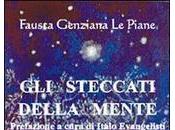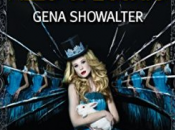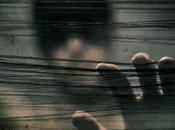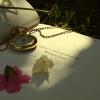
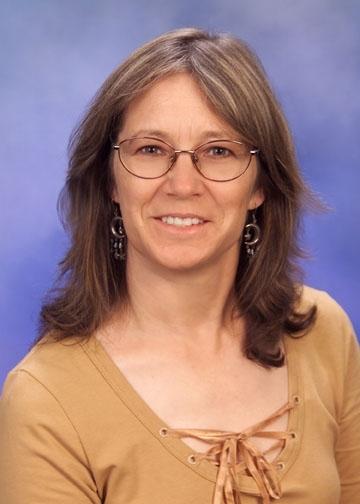
Biography
Robin Hobb, second pen name of Margaret Astrid Lindholm Ogden, born 1952 in California, is an American writer. She writes primarily fantasy fiction, although she has published some science fiction. From 1983 to 1992, she wrote exclusively under the pseudonym Megan Lindholm. Fiction under that pseudonym tends to be contemporary fantasy. In 1995, she began use of the pseudonym Robin Hobb for works of epic traditional European Medieval Fantasy. She currently publishes under both names, and she currently lives in Tacoma, Washington.
Official website: http://www.robinhobb.com/
The translation of this interview was edited by our collaborator Maurizio, thanks to him we had a chance to get in touch with Robin Hobb.
Hello Robin, welcome to SognandoLeggendo. First of all, thank you for agreeing to be our guest.
You are my favourite writer and I’m very glad I have the chance to interview you: at least one hundred questions come to my mind which I would like to ask you, but I will try not to be carried away.
Delving in your memory, what was the book which represented your first approach to reading? And what was the first fantasy book you read?
My first fantasy book was called The Joyous Story of Astrid. It was an old book when I read it, and has been out of print for many years now, but I was able to find a copy of it some years back. The writing is still as magical as the first time I read it. As for which book I read first, other than school books, it was probably a Dr. Seuss one, maybe McElligott’s Pool!
When did you first realize you wanted to be a writer?
I knew from the time I was very small that I wanted to be a writer. I first tried to write a short story when I was in the first grade, so about 5 or 6 years old.
When you started writing, why did you choose this particular genre?
All my life, I have loved myth and fairy tales and legends. When I read The Lord of the Rings it showed me all that Fantasy could be. When I first started writing, I tried to write things that I thought would sell. But I quickly realized that I had to write what I loved reading. And that was fantasy.
Every writer has their preferences when it comes to putting ideas on paper. Do you handwrite or use a computer?
My handwriting is now Times New Roman, 12 point. :) My first preference is to type on a computer, as the words on the screen look like the words on a page, and that is important to me. How a page looks, how dense the print, the ratio of dialogue to description is an important part of my writing process. But if I cannot type, I prefer to use a good sharp pencil or mechanical pencil on lined paper, such as a spiral notebook. I like the sound and feel of the lead on the paper. But, if all else fails, I just write with whatever pen is there on whatever paper I can find. On the latest airplane ride, I outlined half a book on the back of my E-ticket print out!
What is writing for you?
I think I spend most of my hours writing. Even when I am not at the keyboard, my mind is in that world while I am weeding the garden or folding the clothes. So it is the background music for my life, I think.
What is the best compliment you got as a writer?
I think the best compliment a writer can get is when someone says, “My friend gave me your book,” or “I gave my sister your book and she loved it, too.” That means the most to me, when someone loved the story so much that they wanted to share it with family or friends.
The second volume of the Rain Wild Chronicles, Dragon Haven – the ideal sequel of The Liveship Traders Saga – is just out in Italy. How did you come to think of living ships?
As you know, my husband works in the maritime industry, as did his father and grandfather before him. I used to go to join him on the tender during the summer. (A tender is a vessel that accepts fish from the fishing boats and takes the catch back to the cannery.) My experience of ships is that they each have a personality, something that is independent of the crew that works them. My husband and his friends often speak of boats as if they were alive and had wills of their own. Some ships seem to be deliberately difficult. Others seem to be friendly and helpful to their crews. So, from that to live ships was not a very large step.
Fantasy is a serious thing. A fantastic world must have its own logic, different from the real world’s, but as much rigorous. You had the privilege to being able to invent your own rules for the Realm of the Elderlings and set there many of your splendid stories. Was it sometimes difficult to observe such rules to maintain the logic and the credibility of the universe you had conceived?
I think the most difficult part is remembering the detail of the rules, so that I don’t contradict the magic later in a different story! The ‘mythos’ of the world can become so large and complicated that it’s exhausting to write. My biggest fear is that I will have a mistake get into print, and ruin the magic system of the stories! The magic of the world has to be kept as strictly as the laws of physics are kept in a mainstream book.
On the occasion of this interview, I’m reviewing The Liveship Traders Trilogy. Which one of the territories belonging to the Ream of the Elderlings you enjoyed most writing of?
I think that Buckkeep is my favorite place. Possibly that is because I’ve spent so much time there. I can close my eyes and walk through the keep.
Is there a character of The Liveship Traders Trilogy you like most?
Oh, I become very fond of all my characters. Brashen Trell was a lot of fun to write, but so was Kennet. Davad with his short sighted ways was an interesting character to explore, in the same way that the Satrap was. And Malta! She was wickedly fun to write!
Where do love of the sea and passion for navigation which are so evident in your novels come from?
These probably come from my husband. I am not especially useful on a boat, though I do enjoy my time aboard. What I love to watch is a good crew in action, because it all seems to happen like clockwork, with very few orders shouted about. Every member of the crew knows his job and as long as each one does it, the ship runs smoothly.
Is there a book on your shelves you are particularly fond of or you wish you had written yourself?
Oh, there are many books on my shelves that I am very fond of, but I cannot imagine wishing that I had written someone else’s book. That seems like a very peculiar idea to me! I think that is because what I most enjoy about a good book is the chance to experience someone else’s world as if I were the writer. One perennial favorite with me is a children’s book: Rudyard Kipling’s The Jungle Book. For fantasy, I think I will always turn to The Lord of the Rings as my favorite.
You are a successful author in Italy, as it was demonstrated by the triumphal tour culminated in the Parma Fantasy festival last year. What is your relation with our country?
Perhaps my relationship with Italy is a fascination with the history of the Romans. During high school, I took four years of Latin, and that involved a lot of translations from Julius Caesar, Cicero, etc. I think that world captured my imagination then and has never completely let me go.
The fantasy genre is relatively new in Italy. Do you know an Italian fantasy writer?
Hm. Does Dante Alighieri count? I read the Divine Comedy in translation when I was a teenager. All these years later, his fantastic imagery still surges up into my mind sometimes. But I am sad to say that I am unfamiliar with Italian fantasy writers in the modern age.
Do you have a ritual, an obsession, a favourite place which help you to find inspiration and always ‘accompany’ you when writing?
When I was a teenager, I used to climb up into the meat cache. It was a tiny log house, high on stilts, for the storage of game meat in the winter time. In the summer, it was empty, and I used to go up there and sit and write in a spiral notebook.
Now I like to go down to our ‘pocket farm’. It’s a small property, less than four acres, mostly meadow and a stream and a small slice of forest. My Internet reception there is poor, and it’s impossible to get cable television. It’s very quiet and when I go there, I can get a lot of writing done. That is where I am sitting right now as I type this. Unfortunately for me, my little office has a window that looks directly out at the road that goes past the house rather than toward the pond.But there is still a lot of grass, and daffodils and a couple of apple trees between me and the road. So it is not too bad, and if I leave the door open, I can hear the red-wing blackbird down on the pond.
That was the last question. I would like to thank you again for your time. We hope to see you soon in Italy. Keep inventing fantastic worlds to dream of for all of us.
